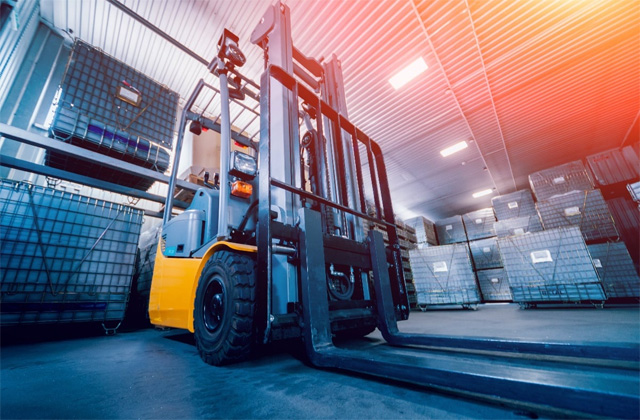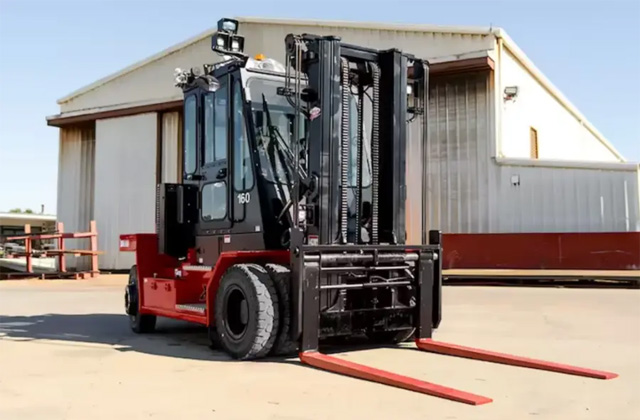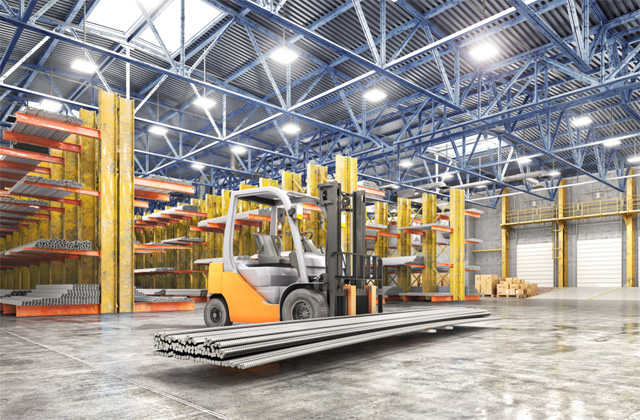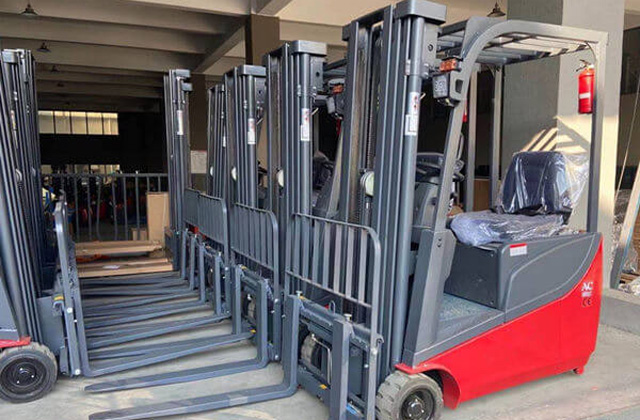In the modern logistics and warehousing industry, forklifts, as one of the most basic handling tools, play an indispensable role. With the continuous development of the global economy and supply chain, the forklift industry is also constantly innovating and evolving in technology. Whether it is electric forklifts, internal combustion forklifts or more advanced automated forklifts, their application scenarios have expanded from traditional warehouses and production lines to more industries, such as retail, construction, agriculture, etc. The core task of forklift production and manufacturing manufacturers is to continuously improve the performance, efficiency and environmental protection of forklifts to meet the increasingly complex market needs.

In 2025, the forklift manufacturing industry is facing unprecedented transformation challenges. With the increasing popularity of automation, intelligence and green environmental protection technologies, forklift manufacturers need to find breakthroughs in innovation, not only to meet basic functional requirements, but also to adapt to new trends in the industry and promote the forklift industry towards more efficient, intelligent and sustainable development.
1. Evolution and development trend of forklift manufacturing technology
(1) The history of forklift technology
As a special material handling equipment, forklifts first appeared in the early 20th century. The original forklift was just a simple hydraulic lifting platform with simple operation and relatively single function. However, with the advancement of technology, forklifts have gradually gone through several stages of development, from manual, internal combustion to electric, and now to automated forklifts. Technological innovation is constantly driving the development of the forklift industry.
1. Traditional internal combustion forklifts: Early forklifts were mainly driven by internal combustion engines, with high load capacity and strong power, suitable for outdoor and harsh environments. They usually use diesel, gasoline or liquefied petroleum gas as a power source, which can provide a longer service time and a larger handling capacity.
2. Electric forklifts: With the increasingly stringent environmental regulations, electric forklifts have gradually become the mainstream. Electric forklifts are increasingly favored by various companies due to their advantages such as low noise, no pollution and low maintenance. They are suitable for indoor environments such as warehouses and factories, and can effectively reduce energy consumption and environmental pollution.
3. Automated forklifts: In recent years, the application of automated forklifts in the logistics industry has gradually emerged, especially in large storage centers and logistics distribution centers. Automated forklifts, with their highly intelligent characteristics, can effectively reduce labor costs and improve work efficiency. Automated forklifts not only have functions such as automatic driving, automatic stacking, and automatic charging, but can also achieve accurate path planning and task scheduling through data integration and management.
(2) Future forklift technology trends
In 2025, forklift manufacturing technology will usher in further breakthroughs, and intelligence, green environmental protection and automation will become the main directions of forklift technology development. Future forklifts will have more advanced functions to meet the intelligent needs of global supply chains and warehousing logistics.
1. Intelligence and Internet of Things Technology: Internet of Things (IoT) technology will enable forklifts to communicate with other devices or systems in real time through sensors, GPS, RFID and other technologies. This will not only help companies achieve accurate inventory management, but also monitor equipment status and predict maintenance, avoid forklift failures and downtime, and greatly improve work efficiency.
2. Green environmental protection and energy efficiency: As environmental protection requirements become increasingly stringent, forklift manufacturers will pay more attention to the research and development of environmental protection and energy-saving technologies. Future forklifts will make deeper innovations in battery life, energy efficiency, exhaust emissions, etc. to reduce the burden on the environment. At the same time, the application of green energy, such as hydrogen fuel cell forklifts and solar forklifts, will also become a new trend in the industry.
3. Automation and artificial intelligence: Automated forklifts will continue to improve and have a higher level of intelligence. Artificial intelligence (AI) will play an important role in forklift path planning, obstacle avoidance, cargo handling, etc. The addition of AI technology can not only improve the operating accuracy of forklifts, but also enable forklifts to have the ability to autonomously learn and adapt to environmental changes, thereby further reducing manual intervention and improving work efficiency.
4. Multifunctionality and modular design: Future forklifts will not only be limited to handling goods, but may also have more functions, such as cargo sorting, cleaning, and maintenance. Modular design will make forklifts more flexible, and users can choose different functional modules according to their needs, reducing investment costs and improving the versatility of equipment.
2. Challenges and opportunities faced by forklift manufacturers
(1) Challenges faced by the industry
Although the forklift manufacturing industry is full of opportunities, with the increasingly fierce market competition, forklift manufacturers are also facing a series of challenges:
- Pressure of technological innovation: With the continuous upgrading of customer needs, forklift manufacturers need to continuously improve their technical level to meet the personalized needs of different fields and industries. This places higher demands on the R&D capabilities of manufacturers, requiring them to stay ahead in product innovation, technological breakthroughs and market adaptability.
- Cost control and environmental protection requirements: The manufacture of forklifts requires a large amount of material, energy and labor input, and the increasingly stringent environmental regulations have made forklift manufacturers face more challenges in product design, production processes and material selection. How to balance cost control and environmental protection requirements has become an urgent problem for manufacturers.
- Uncertainty in the global supply chain: Uncertainty in the global economy, fluctuations in raw material prices, and bottlenecks in logistics and supply chains may affect the production cycle and cost of forklift manufacturing. Therefore, forklift manufacturers need to pay more attention to supply chain management, optimize production processes, and ensure the stability of product quality and delivery time.
(2) Industry opportunities
1. Market demand for automation and intelligence: As the level of automation in the logistics industry gradually improves, the demand for intelligent forklifts is also growing. Enterprises have an increasing demand for automated forklifts and unmanned forklifts. Forklift manufacturers can develop more intelligent and automated products through technological innovation to seize market share.
2. Green and environmental protection trend: As the world pays more attention to environmental protection, the demand for green forklifts will continue to rise. The research and development and promotion of environmentally friendly equipment such as electric forklifts and hydrogen fuel forklifts will bring new business opportunities for forklift manufacturers. Environmentally friendly forklifts are not only in line with national policies, but also help customers reduce operating costs and reduce environmental pollution.
3. The rise of emerging markets: With the multipolar development of the global economy, the increasing logistics demand in emerging markets, especially in Asia, Africa and other regions, provides a wealth of market opportunities for forklift manufacturers. Forklift manufacturers can expand sales channels and achieve business growth by exploring these emerging markets.
3. Shuangchao Machinery-Providing high-quality forklift manufacturing solutions
Among many forklift generators and manufacturers, Shuangchao Machinery stands out with its leading technology, excellent product quality and innovation capabilities. Shuangchao Machinery has many years of experience in the field of forklift manufacturing and is committed to providing efficient, environmentally friendly and intelligent forklift solutions for all walks of life. The company ensures that every forklift meets the high standards of users through precise design, advanced manufacturing processes and strict quality control.
Shuangchao Machinery not only focuses on traditional electric forklifts, internal combustion forklifts and other products, but also has made significant technological breakthroughs in the fields of automated forklifts and intelligent forklifts. The company is committed to improving the intelligence level of forklifts through the Internet of Things, AI technology, and automated control, helping companies reduce operating costs and improve work efficiency.
In terms of product quality and after-sales service, Shuangchao Machinery always adheres to the principles of high standards and high quality to ensure that every forklift can operate stably in extreme working environments. Through continuous innovation and optimization, Shuangchao Machinery has become the trusted choice of many customers around the world, helping companies achieve digital and intelligent logistics management.
As an indispensable and important equipment in the logistics industry, the innovation and development of forklift technology will directly affect the efficiency and stability of the global supply chain. In 2025, the forklift industry will face more challenges and opportunities. Forklift manufacturers need to make technological breakthroughs in automation, intelligence, environmental protection and other fields to cope with future market changes.
With its strong technical research and development and innovation capabilities, Shuangchao Machinery will continue to lead the development of the forklift industry and provide customers with more efficient, environmentally friendly and intelligent forklift solutions. Let us look forward to the logistics revolution brought about by forklift technology in the near future, which will drive the global economy to develop faster and more efficiently.



